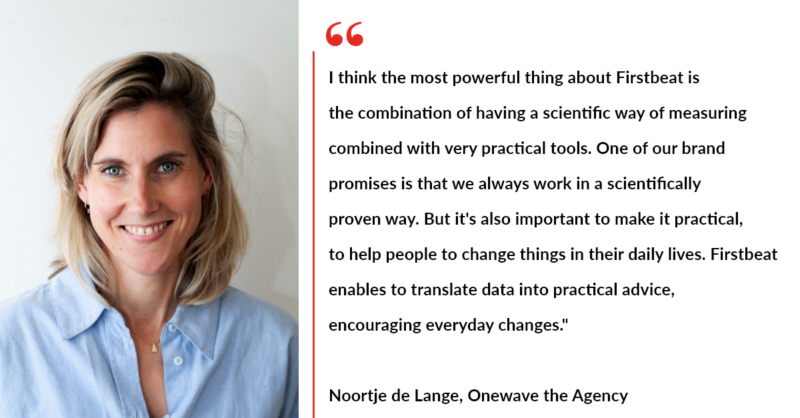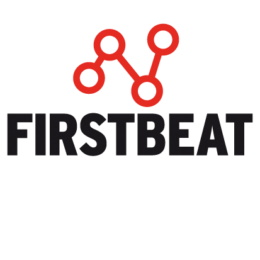
The joint efforts made in Salo to improve occupational well-being led to a reduction of sick days and the development of the work communities involved. In the effectiveness survey, over 85% stated that the activities had improved their well-being. The clearest wish expressed by the workers was that they wanted to take part in the Firstbeat Lifestyle Assessment again in the future.
In Salo, the measures aimed at furthering well-being at work have involved both individuals and work communities. The results have been encouraging. The efforts produced means for reducing work-related stress factors, managing life on a personal level and increasing the well-being of work communities.
750 workers went through the Lifestyle Assessment process, including feedback events, and received personal information regarding the stress placed on their bodies, recovery and ways to avoid exhaustion. The sections of the Finnish Institute of Occupational Health’s TIKKA (integrated method for assessing workload) survey that focused on psychological and social stress factors analysed issues at the level of the work community.
“A person is a whole both at work and in leisure. We can affect our performance and work communities through our own choices,” states Work Well-being Coordinator Katja Mäkinen of the City of Salo.
The Lifestyle Assessment developed by Firstbeat Technologies Ltd. through a multidisciplinary process is based on the measurement of heart rate variability. It provides individualised and precise information on how the body reacts to different things. The measurement data collected over three days reveals details about body stress, recovery periods, quality of sleep and the effects of exercise.
Annukka Sistonen ja Katja Mäkinen were trained to perform the Lifestyle Assessment and organised the measurements through HR management.
“Lifestyle Assessment is a motivational tool that performs many tasks for those responsible for occupational well-being. Despite its voluntary nature, the analysis has been very popular. The participation rate has been over 75% across the board,” explains Annukka Sistonen, Work Well-being Coordinator of the City of Salo.
An Average of Five More Healthy Work Days per Year
In Salo, the measures to improve well-being at work were first concentrated in fields that were known to suffer from a high number of sick days. The areas included home care, substitution services, catering and cleaning services as well as early education. The management and the members of staff responsible for HR and occupational health and safety were also involved in the efforts. In addition to targeted activities, benefits and encouragement towards a healthy lifestyle were provided equally to all personnel groups.
“Before our community-wide efforts, home care had the highest number of sick days. In 2011, the average was 16.3 days per employee. Last year, the number of sick days in home care was lower than in other areas of elderly care – 11.1 days on average,” says Work Well-being Coordinator Annukka Sistonen.
The Lifestyle Assessment and TIKKA survey were followed by focused group activities and the development of work community practices and sparring aimed at supervisors. Groups were offered for workers suffering from sleeping problems or stress, and for those aiming to take up sports and exercise.
A significant factor in the success of the efforts has been clear and well-thought-out communication that informs, motivates, encourages and provides reminders of important factors on a regular basis. Activities at the individual and community levels are conducted in sequence, so the key themes are always revisited in time.
Coordinators Mäkinen and Sistonen were recruited specifically to lead the work well-being project, which has enabled careful planning along with systematic and focused work.
“I’m positive that the work well-being project has been sound financially, too. If you calculate the cost of sick days, these measures are certainly not expensive,” Sistonen and Mäkinen estimate.
Help for Improving Physical Fitness and Recovery
At the end of last year, the work well-being project was assessed through an effectiveness survey. All those participants of the targeted activities whose e-mail addresses were known were asked to respond.
Over 85% indicated that the Lifestyle Assessment had helped to improve their well-being. According to the survey, most had received help for increasing their physical fitness (47.8%), improving their recovery or sleep (39.5%) and for stress management (20.6%).
39.5% of the respondents were completely happy with the activities. The most significant shortcoming was indicated to be the lack of follow-up measurements for the Lifestyle Assessment.
The TIKKA survey was seen as useful, as it provided the employees with the opportunity to express their own opinions (59.8%) and discuss the responses in teams (49.4%).
“In terms of the survey results, we were already delighted by the fact that the response rate was over 80% (some 300 responses). This is a clear sign that these efforts matter. Many changed their lifestyle in some way that corresponded with the goals of the project,” Annukka Sistonen says.
She emphasises that even small changes can have a considerable effect on motivation and avoiding exhaustion. For example, if an employee begins to exercise more or increases his or her hours of nightly sleep, this will show at the workplace. The Lifestyle Assessment clearly indicates the detrimental effects that alcohol, even when used sparingly, has on the balance of stress and recovery.
“The Lifestyle Assessment will open your eyes to the effects of your own choices. It will also help you understand your colleagues better. Those who have completed the assessment won’t mind if one of their co-workers wants to take a small break during work. It isn’t efficient to try and forge through the entire day when completely exhausted,” Katja Mäkinen says.
Both Sistonen and Mäkinen promise to begin the requested follow-up measurements of the workers during the spring.
If you liked this article, you should subscribe to our mailing list
You might also be interested in

Balancing Performance and Recovery in Mexico’s Top Basketball League
Arnau Pina is the Strength and Conditioning Coach at Halcones de Xalapa, a basketball team competing in the Liga Nacional de Baloncesto Profesional, Mexico’s top professional basketball league. In this…

Transforming Workplace Well-Being with Data-Driven Insights: How Onewave Boosts Energy and Performance using Firstbeat Life
Onewave, a Netherlands-based company, offers unique programs that enhance workplace energy and performance through data-driven insights, personalized advice, and practical tools for transforming work environments. Using insights from Firstbeat Life…
